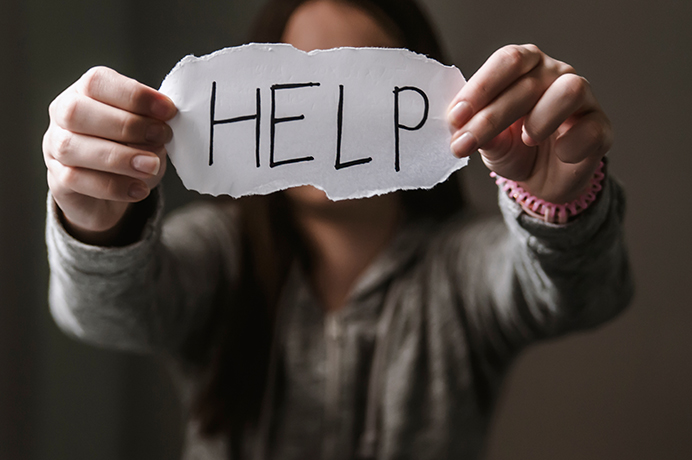The household isolation instruction as a result of coronavirus does not apply if you need to leave your home to escape domestic abuse.

Over the recent weeks, measures were announced to tackle the coronavirus which have seen people’s day to day lives dramatically change. In order to beat the virus and save the NHS these changes are essential.
It has been acknowledged by the government that anxiety is heightened for those who are experiencing or feel at risk of domestic abuse. The UK’s largest domestic abuse charity, Refuge, has reported a 700% increase in calls to its helpline in a single day, while a separate helpline for perpetrators of domestic abuse seeking help to change their behaviour received 25% more calls after the start of the Covid-19 lockdown. No matter what the circumstances are, there is never an excuse for domestic abuse.
If you are worried that someone you know may be a victim of domestic abuse, reassure them that the police and support services are still there to help and direct them to sources of support.
What is domestic abuse?
Domestic abuse is not always physical violence. It can also include, but is not limited to:
- coercive control and ‘gaslighting’
- economic abuse
- online abuse
- verbal abuse
- emotional abuse
- sexual abuse
What signs to look for
If you believe that you or someone else could be a victim of domestic abuse, there are signs that you can look out for including:
- being withdrawn
- having bruises
- controlling finances
- not being allowed to leave the house
- monitoring technology use such as social media platforms
Where to get help:
Call 999 – If you are in immediate danger, call 999 and ask for the police – the police will continue to respond to emergency calls. If you are in danger and unable to talk on the phone, dial 999, listen to the questions from the operator and respond by coughing or tapping the handset if you can. Then follow the instructions depending on whether you are calling from a mobile or a landline.
If you call from a mobile
If prompted, press 55 to Make Yourself Heard – this will transfer your call to the police.
Pressing 55 only works on mobiles and does not allow police to track your location.
If you call 999 from a landline
If only background noise can be heard and BT operators cannot decide whether an emergency service is needed, then you will be connected to a police call handler.
If you replace the handset, the landline may remain connected for 45 seconds in case you pick up again.
When 999 calls are made from landlines, information about your location should be automatically available to the call handlers to help provide a response.
Support for employers
If you are an employer, it is important that you signal to all your workforce that if they are facing domestic abuse you want to help them to get help. Keep in regular contact with employees you know, or fear, may be facing abuse and if you lose contact with them, take swift action to visit them. If you believe there is an immediate risk of harm to someone, or it is an emergency, you should always call 999.
Encourage employees to look out for others who may be facing domestic abuse and signpost them to support. Your staff may also be worried about their own abusive behaviour at this time. There is no excuse for domestic abuse, no matter what stresses you are under and support is available.
The Employers’ Initiative on Domestic Abuse website has a range of resources to support employers. Business in the Community also have a toolkit with information for employers.
National Domestic Abuse Helpline
Refuge runs the National Domestic Abuse Helpline, which you can call for free, and in confidence, 24 hours a day on 0808 2000 247. Its website provides guidance and support for potential victims, as well as those who are worried about friends and loved ones. It also has a form through which you can book a safe time for a call from the team.
Women’s Aid
Women’s Aid has a range of direct services for survivors, including a live chat service and an online Survivors’ Forum. They have developed additional advice specifically designed for the current coronavirus outbreak. You can also find your local domestic abuse service on their website. They also provide information on the support helplines available in Wales, Scotland and Northern Ireland.
Men’s Advice Line
The Men’s Advice Line is a confidential helpline for male victims of domestic abuse and those supporting them. Telephone: 0808 801 0327
For more information please visit: https://www.gov.uk/guidance/domestic-abuse-how-to-get-help
